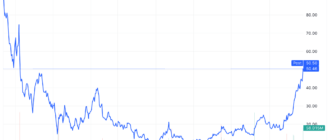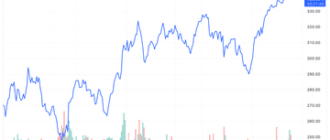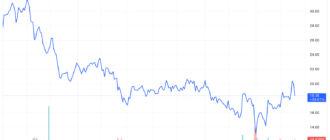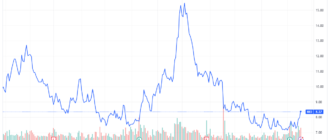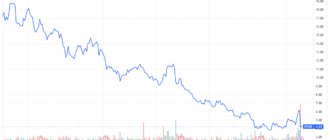
The CEO of Air France-KLM Jean-Marc Janaillac, at Paris on may 4, 2018 (Photo by GEOFFROY VAN DER HASSELT. AFP)
The boss of Air France, Jean-Marc Janaillac on Friday announced his resignation after the rejection surprise of a draft wage agreement be submitted to a vote of the staff by the CEO, who had to depend on his keeping his post at the outcome of this consultation.
“I take responsibility for the consequences of this vote, and I will in the next few days my resignation to the Boards of directors of Air France and Air France-KLM (PA:AIRF)”, said Mr. Janaillac, the closed face face to journalists, lamenting a “huge mess that can only gladden our competitors, weaken our alliances and confuse our teams”.
According to a press release of the company, who knew Friday the 13th day of strike action since February, the CEO, 65-year-old and the controls of the Air France-KLM group since July 2016, will convene the board of directors on the 9th may.
The wage agreement proposed by the management provided for in 2018 to 2021 “of general increases in salary of 7% over four years, adding to the individual increases”, compared with 1% in 2018 in two phases initially.
Beating forecasts, the staff has rejected 55,44% the draft agreement. The 46.771 the employees of Air France (in French contract) were invited to answer the question : “To enable a positive outcome to the ongoing conflict, are you in favour of the pay agreement proposed on April 16, 2018 ?”.
With regard to the participation rate of 80,33%, Mr. Janaillac has found that “everyone wanted to make their voices heard”. “This vote is the translation of a malaise, it called for a profound transformation”, he added, hoping that his departure will allow “a collective awareness and to initiate the conditions of a bounce.”
In announcing the organization of this consultation without legal value, which was decided after the failure of talks with the unions and strikers, the CEO had warned him that he would be leaving his position in the event of a negative result.
The Prime minister Edward Philip had welcomed to his position “courageous,” encouraging “everyone to wear a seat belt” in case of departure of Mr. Janaillac in these conditions, “because the turmoil (…) would not be minimal”.
This resignation comes on the same day of the announcement by the group from a net loss of 269 million euros in the first quarter, leaded by a three-day strike (February 22, 23 and 30 march) of Air France over this period.
The cost of the first eleven days of strike action is estimated to be “300 million euro”, or a little more than $ 25 million per day for the group, which already foresees an operating profit by 2018 “has been a significant decrease compared to 2017”, when it had amounted to € 1.9 billion.
– “Major crisis” –
On Friday, negotiations with the unions of Air France seemed more than ever to the point of death, as well as the wage demands that other internal agreements in discussion.
This is the thirteenth day of the strike coincided with a new sequence of strikes at the SNCF, the French operator of the rail.
“If the no wins, ( … ), one enters a major crisis, even if the strike might stop, because she will no longer have any meaning” without “boss to negotiate,” said Beatrice Ict, of the CFDT union (non-striker), before the publication of the outcome of the consultation.
The inter-union calling for the strike demanding for the staff, its “share of the cake” after the strong results registered by the group in 2017.
She requested a 5.1% increase in two times in 2018 (+3.8% in April and +1.3% in October) as a “catch-up” is necessary, after six years of frozen pay scales.
These claims are considered by management as a challenge of efforts in recent years to catch up with the competitiveness of the company, still faces a very strong competition from companies in the Gulf, but also in Europe with low-cost airlines aggressive.
With an operating margin (a profitability criteria of the air group) of 555 million euros, compared with 910 million for KLM, the company is “still far behind many of its competitors”, according to the direction.


